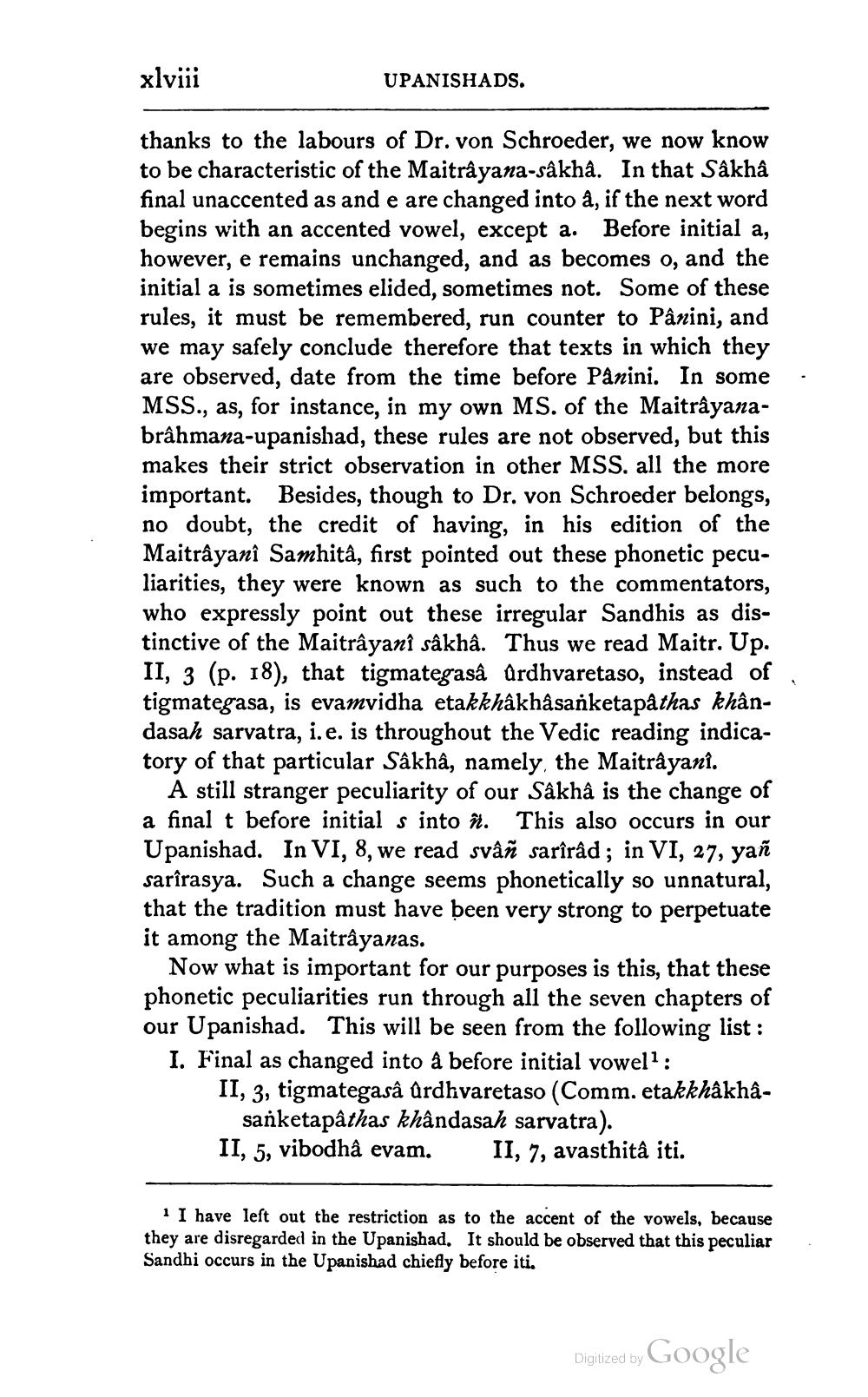________________
xlviii
UPANISHADS.
thanks to the labours of Dr. von Schroeder, we now know to be characteristic of the Maitrâ yana-sâkha. In that Sâkhâ final unaccented as and e are changed into à, if the next word begins with an accented vowel, except a. Before initial a, however, e remains unchanged, and as becomes o, and the initial a is sometimes elided, sometimes not. Some of these rules, it must be remembered, run counter to Pânini, and we may safely conclude therefore that texts in which they are observed, date from the time before Panini. In some MSS., as, for instance, in my own MS. of the Maitrayanabrâhmana-upanishad, these rules are not observed, but this makes their strict observation in other MSS. all the more important. Besides, though to Dr. von Schroeder belongs, no doubt, the credit of having, in his edition of the Maitrầyanî Samhitâ, first pointed out these phonetic peculiarities, they were known as such to the commentators, who expressly point out these irregular Sandhis as distinctive of the Maitrậyanî sâkhâ. Thus we read Maitr. Up. II, 3 (p. 18), that tigmategasâ ûrdhvaretaso, instead of tigmategasa, is evamvidha etakkhâkhâsanketapâthas khândasah sarvatra, i.e. is throughout the Vedic reading indicatory of that particular Sâkhâ, namely, the Maitrayani.
A still stranger peculiarity of our Sâkhâ is the change of a final t before initial s into ñ. This also occurs in our Upanishad. In VI, 8, we read svâñ sarîrâd; in VI, 27, yañ sarîrasya. Such a change seems phonetically so unnatural, that the tradition must have been very strong to perpetuate it among the Maitrầyanas.
Now what is important for our purposes is this, that these phonetic peculiarities run through all the seven chapters of our Upanishad. This will be seen from the following list : I. Final as changed into a before initial vowell:
II, 3, tigmategasâ Urdhvaretaso (Comm. etakkhâkhâ
sanketapâthas khândasah sarvatra). II, 5, vibodhâ evam. II, 7, avasthitâ iti.
1 I have left out the restriction as to the accent of the vowels, because they are disregarded in the Upanishad. It should be observed that this peculiar Sandhi occurs in the Upanishad chiefly before iti.
Digitized by Google




